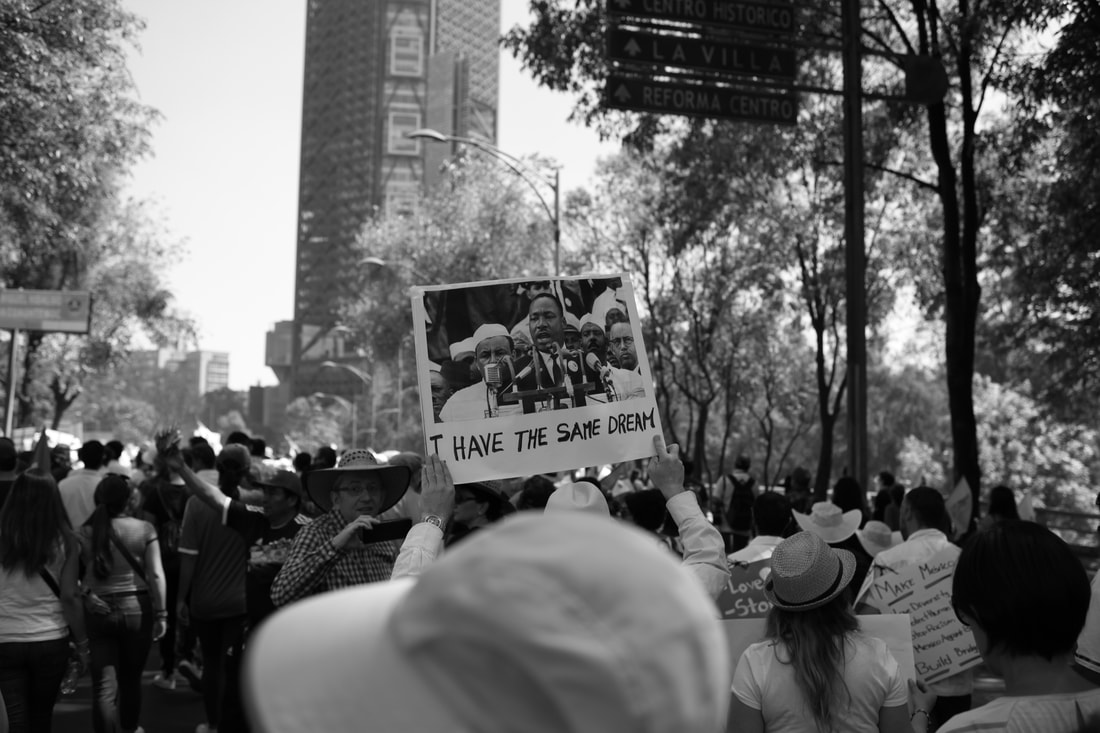I HAVE A DREAM: REFLECTIONS ABOUT ECONOMIC EMPOWERMENT AND WOMEN ENTREPRENEURSHIP

On this Dr. Martin Luther King, Jr. Day, 2018, I want to offer a historical tribute and a personal reflection on the accomplishments of the civil rights movement as it relates to economic empowerment and women entrepreneurship.
For my historical tribute, let's go down memory lane.....During the 1960's, Dr. King along with other champions of civil rights movement (many of which included unsung women activists and organizers) fought for equal rights and protection from discrimination for all United States citizens. Among the accomplishments of this movement was the passage of civil rights legislation. I share two examples. As a first example, the Equal Pay Act of 1963 requires employers to pay equally for equal work regardless of whether employees are male or female. As a second example, the Civil Rights Act of 1964 outlawed discrimination based on race, color sex, religion, or national origin in the use or access of public places of accommodation such as restaurants, hotels, theaters, and public transportation. In summary, these civil rights protections enabled broader civic participation, increased social mobility, and improved workforce opportunities for women in general as well those who are racial and ethnic minorities.
While the practice of these protections has and still faces challenges, women in general today have better access to goods and services, better representation in civic and political arenas, and more opportunities for personal economic development. If we look at these protections as a foundation for supporting women empowerment, how have they helped and supported them as entrepreneurs? To answer this question, I now look at the status of women entrepreneurship in the United States.
For my historical tribute, let's go down memory lane.....During the 1960's, Dr. King along with other champions of civil rights movement (many of which included unsung women activists and organizers) fought for equal rights and protection from discrimination for all United States citizens. Among the accomplishments of this movement was the passage of civil rights legislation. I share two examples. As a first example, the Equal Pay Act of 1963 requires employers to pay equally for equal work regardless of whether employees are male or female. As a second example, the Civil Rights Act of 1964 outlawed discrimination based on race, color sex, religion, or national origin in the use or access of public places of accommodation such as restaurants, hotels, theaters, and public transportation. In summary, these civil rights protections enabled broader civic participation, increased social mobility, and improved workforce opportunities for women in general as well those who are racial and ethnic minorities.
While the practice of these protections has and still faces challenges, women in general today have better access to goods and services, better representation in civic and political arenas, and more opportunities for personal economic development. If we look at these protections as a foundation for supporting women empowerment, how have they helped and supported them as entrepreneurs? To answer this question, I now look at the status of women entrepreneurship in the United States.
In summary, for those women who have reached a ceiling in earnings for their occupation, have struggled with gender pay gaps in their industry, or had to leave the workforce for personal reasons, the good news is that personal economic empowerment through entrepreneurship is economically viable and attainable.
In closing, the catalyst for women to improve their personal economic situations as well as have a voice in matters that effect the economic well-being of their businesses has its roots in the accomplishments of the civil rights movement. Subsequent actions by federal legislation, advocacy, and civic participation has further spurred momentum for women entrepreneurs. In short, now is an exciting time for women entrepreneurs! As an African-American woman and entrepreneur, I deeply appreciate that I can go to a cafe, grab coffee, and attend to my business on my laptop with the expectation that I will not face segregation and discrimination. I am empowered by the past and looking forward to my future of economic freedom, flexibility, and success through entrepreneurship!
In closing, the catalyst for women to improve their personal economic situations as well as have a voice in matters that effect the economic well-being of their businesses has its roots in the accomplishments of the civil rights movement. Subsequent actions by federal legislation, advocacy, and civic participation has further spurred momentum for women entrepreneurs. In short, now is an exciting time for women entrepreneurs! As an African-American woman and entrepreneur, I deeply appreciate that I can go to a cafe, grab coffee, and attend to my business on my laptop with the expectation that I will not face segregation and discrimination. I am empowered by the past and looking forward to my future of economic freedom, flexibility, and success through entrepreneurship!
If you are a woman who is an entrepreneur or dreaming about entrepreneurship, what is empowering you? Share with me Twitter!
Happy MLK Day!
Happy MLK Day!
By Yvette Williams, Ph.D.
Freelance Writer for The Esteemed Scribe
Comments
Post a Comment